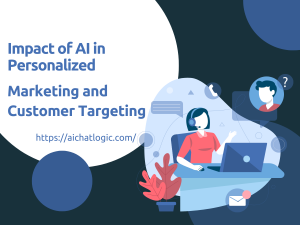Introduction:
Artificial Intelligence (AI) has revolutionized numerous industries, and the legal field is no exception. AI technologies are transforming the practice of law, reshaping how legal professionals conduct research, analyze contracts, predict case outcomes, and streamline document review processes. This article explores the various ways AI is reshaping the legal landscape and the potential benefits it offers.
How AI is Transforming Legal Research
2.1 Automating Legal Research Processes
AI has made significant strides in automating research, reducing the time and effort required to gather relevant information. Natural Language Processing (NLP) algorithms enable AI systems to comprehend texts, extract key information, and present it in a digestible format. By automating the tedious process of sifting through vast volumes of documents, AI allows professionals to focus more on analyzing and interpreting the information.
2.2 Enhancing Efficiency and Accuracy
AI-powered legal research tools not only speed up the research process but also improve accuracy. With advanced algorithms, these tools can analyze cases, statutes, and regulations more comprehensively than traditional methods. By leveraging machine learning capabilities, AI systems continuously learn and improve their understanding of legal concepts, resulting in more accurate and reliable results.
2.3 Expanding Access to Legal Information
AI-driven platforms and databases have democratized access to information. With the power of AI, professionals and individuals alike can access a wealth of knowledge, enabling better-informed decision-making. This increased accessibility helps bridge the gap between experts and those seeking guidance, ultimately improving access to justice.
AI-Powered Contract Analysis and Due Diligence
3.1 Streamlining Contract Review Processes
Contract review is a time-consuming task for lawyers, involving the analysis of complex legal language, identifying risks, and ensuring compliance. AI-powered contract analysis tools simplify this process by automatically extracting key provisions, highlighting potential issues, and flagging ambiguities. By reducing the time spent on manual review, lawyers can allocate their resources more efficiently and focus on high-value tasks.
3.2 Identifying Risks and Ambiguities
AI systems excel at identifying potential risks and ambiguities in contracts. By leveraging machine learning algorithms, these tools can compare clauses across various agreements, identify deviations from standard practices, and highlight potential areas of concern. This level of scrutiny helps lawyers mitigate risks and negotiate more favorable terms for their clients.
3.3 Accelerating Due Diligence Procedures
Due diligence processes, such as M&A transactions, often involve reviewing extensive documentation. AI can expedite due diligence by automating the extraction and analysis of relevant information from these documents. By swiftly identifying key facts, potential risks, and contractual obligations, AI streamlines due diligence procedures, saving time and reducing costs.
AI-Assisted Predictive Analytics in Legal Cases
4.1 Analyzing Case Data and Precedents
AI’s ability to analyze vast amounts of case data and precedents empowers legal professionals to make data-driven decisions. By using machine learning algorithms, AI systems can identify patterns, extract relevant information, and provide insights on similar cases. This enables lawyers to build stronger legal arguments and make more accurate predictions about case outcomes.
4.2 Enhancing Litigation Strategies
AI’s predictive analytics capabilities help lawyers develop effective litigation strategies. By analyzing historical case data and identifying successful legal strategies, AI systems can suggest the most favorable approaches for a particular case. This enables lawyers to make informed decisions, allocate resources wisely, and increase their chances of success.
4.3 Predicting Case Outcomes
AI’s predictive capabilities extend to forecasting case outcomes. By analyzing various factors such as case facts, legal precedents, and judges’ tendencies, AI systems can provide probabilities and predictions about case results. While not infallible, these predictions offer valuable insights that can guide legal strategies and help manage client expectations.
The Role of AI in E-Discovery and Document Review
5.1 Efficiently Processing Large Volumes of Data
In today’s digital age, legal cases often involve vast volumes of electronic data. AI-powered e-discovery tools can efficiently process this data, extracting relevant information and filtering out irrelevant or privileged documents. This significantly reduces the time and resources required for manual document review, enabling lawyers to focus on critical aspects of the case.
5.2 Identifying Relevant Information and Patterns
AI’s data analysis capabilities enable it to identify relevant information and patterns within large datasets. Through techniques such as concept clustering and topic modeling, AI systems can categorize and organize documents, making it easier for lawyers to locate and review pertinent information quickly. This enhances the efficiency of document review processes and strengthens the overall case strategy.
5.3 Reducing Costs and Time in E-Discovery
Traditionally, e-discovery has been a costly and time-consuming process. AI offers a solution by automating and expediting various e-discovery tasks. By leveraging AI’s capabilities, legal professionals can reduce costs associated with manual document review, minimize human errors, and accelerate the overall e-discovery process. This ultimately leads to more efficient and cost-effective legal proceedings.
Ensuring Data Security and Ethical Considerations
6.1 Safeguarding Confidentiality and Privacy
As AI becomes more prevalent in the legal field, ensuring data security and confidentiality is of paramount importance. Legal professionals must carefully select AI solutions that prioritize data protection, encryption, and secure storage. By adhering to strict security protocols, lawyers can maintain client confidentiality and safeguard sensitive information.
6.2 Addressing Bias and Transparency
AI systems must be designed and trained to be unbiased and transparent. Bias in AI algorithms can lead to unfair outcomes or perpetuate existing inequalities. Legal professionals need to be aware of these risks and work with AI providers who prioritize fairness, transparency, and accountability. Regular audits and evaluations of AI systems can help identify and mitigate biases, ensuring the ethical use of AI in the legal field.
6.3 Maintaining Human Oversight and Accountability
While AI offers significant benefits, it should never replace human judgment and oversight. Legal professionals must retain ultimate accountability for the advice and decisions made using AI technologies. AI systems should be viewed as tools that enhance legal practice rather than replace human expertise. Human lawyers should exercise due diligence, critically evaluate AI-generated insights, and ensure that they align with legal and ethical standards.
FAQs about AI in the Legal Field
7.1 How is AI transforming legal research?
AI is transforming legal research by automating processes, enhancing efficiency and accuracy, and expanding access to legal information. By leveraging natural language processing and machine learning algorithms, AI systems can extract key information, comprehend legal texts, and provide comprehensive results in a shorter timeframe.
7.2 Can AI accurately predict case outcomes?
While AI can provide probabilities and predictions about case outcomes, it’s essential to understand that it is not foolproof. AI’s predictive capabilities are based on historical data and patterns, but legal cases are complex and subject to various variables. AI predictions serve as valuable insights that can guide legal strategies but should not be solely relied upon.
7.3 What are the ethical concerns surrounding AI in law?
Ethical concerns surrounding AI in law include issues of bias, transparency, privacy, and the potential for AI to replace human judgment. It is crucial for legal professionals to address these concerns by selecting AI systems that prioritize fairness, transparency, data security, and by maintaining human oversight and accountability.
7.4 Will AI replace human lawyers?
While AI has transformed various aspects of legal practice, it is unlikely to replace human lawyers entirely. AI is best viewed as a tool that enhances legal professionals’ capabilities, enabling them to perform tasks more efficiently and make better-informed decisions. The expertise, critical thinking, and empathy that human lawyers provide are still invaluable in complex legal matters.
7.5 How can AI improve e-discovery processes?
AI can improve e-discovery processes by efficiently processing large volumes of data, identifying relevant information and patterns, and reducing costs and time associated with manual document review. AI-powered e-discovery tools automate tasks, such as document categorization and privilege review, making the overall process faster, more accurate, and cost-effective.
Conclusion
AI has emerged as a powerful force in the legal field, transforming how legal professionals conduct research, analyze contracts, predict case outcomes, and streamline document review processes. By leveraging AI technologies, lawyers can enhance their efficiency, accuracy, and decision-making abilities. However, it is essential to address ethical considerations, ensure data security, and maintain human oversight. As AI continues to evolve, it will undoubtedly reshape the practice of law, offering new opportunities and challenges that legal professionals must navigate to provide the best possible outcomes for their clients.












+ There are no comments
Add yours